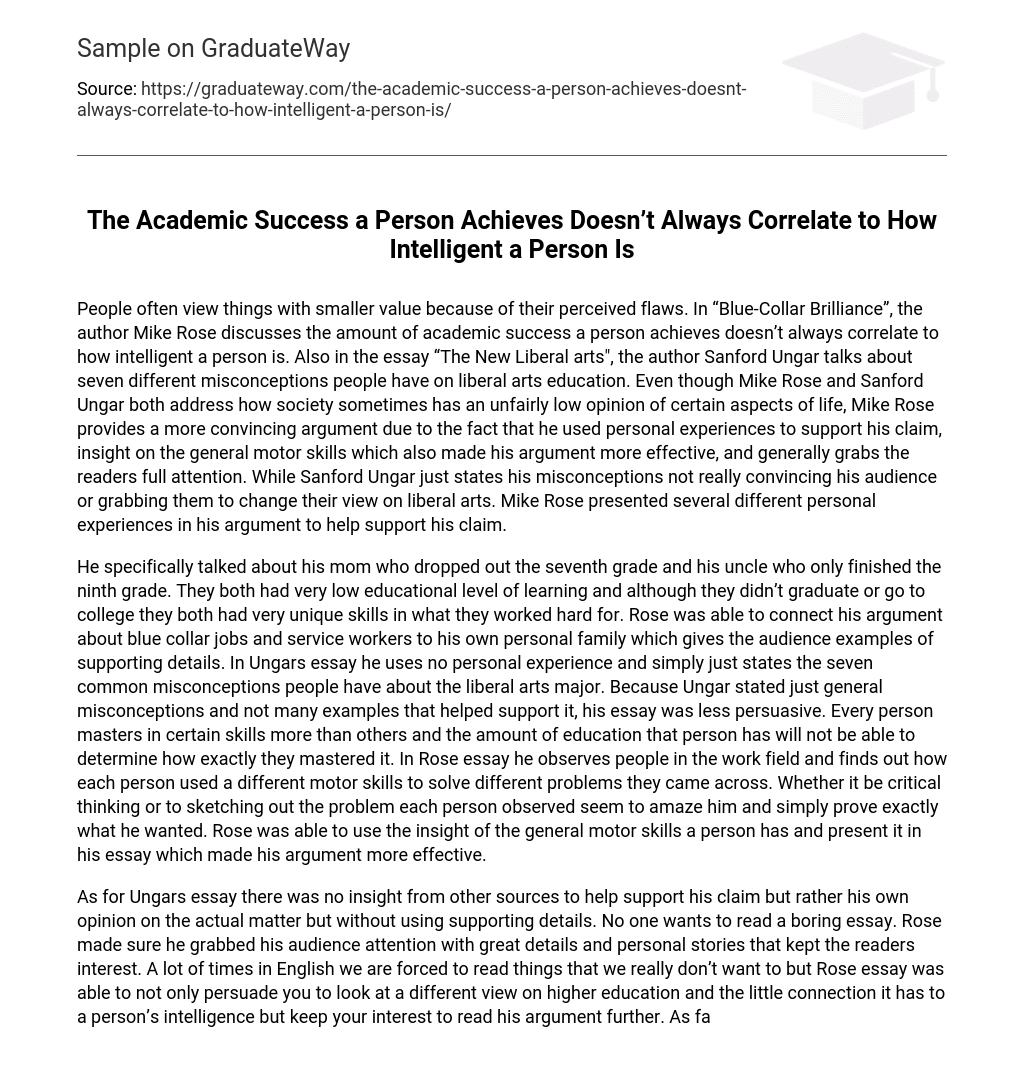People often view things with smaller value because of their perceived flaws. In Blue-Collar Brilliance,” the author Mike Rose discusses how the amount of academic success a person achieves doesn’t always correlate with how intelligent they are. Additionally, in the essay “The New Liberal Arts,” the author Sanford Ungar talks about seven different misconceptions people have about liberal arts education. Although both Mike Rose and Sanford Ungar address how society sometimes unfairly undervalues certain aspects of life, Mike Rose provides a more convincing argument because he uses personal experiences to support his claim, provides insight on general motor skills, and effectively grabs the reader’s attention. In contrast, Sanford Ungar simply states his misconceptions without truly convincing his audience or changing their view on liberal arts. Mike Rose presents several personal experiences in his argument to help support his claim.
He specifically talked about his mom, who dropped out in the seventh grade, and his uncle, who only finished the ninth grade. They both had a very low educational level, and although they didn’t graduate or go to college, they both had unique skills in what they worked hard for. Rose was able to connect his argument about blue-collar jobs and service workers to his own personal family, which gives the audience examples of supporting details. In Ungar’s essay, he uses no personal experience and simply states the seven common misconceptions people have about the liberal arts major. Because Ungar stated just general misconceptions and not many examples that helped support it, his essay was less persuasive. Every person masters certain skills more than others, and the amount of education that person has will not determine how they mastered it. In Rose’s essay, he observes people in the work field and finds out how each person used different motor skills to solve different problems they came across. Whether it be critical thinking or sketching out the problem, each person observed seemed to amaze him and simply prove exactly what he wanted. Rose was able to use the insight of the general motor skills a person has and present it in his essay, which made his argument more effective.
As for Ungar’s essay, there was no insight from other sources to help support his claim, but rather his own opinion on the matter, without using supporting details. No one wants to read a boring essay. Rose made sure to grab his audience’s attention with great details and personal stories that kept the reader’s interest. A lot of times in English, we are forced to read things that we really don’t want to, but Rose’s essay was able to not only persuade you to look at a different view on higher education and the little connection it has to a person’s intelligence, but also keep your interest to read his argument further. As far as Ungar’s essay, he did touch on very good points on things that specifically liberal arts majors may be interested in, but he came from more of an academic view, which made the essay a little less appealing. Although Rose and Ungar talk about how society sometimes has an unfairly low opinion of certain aspects of life, Rose’s argument was way more persuasive. Rose was able to present the reader with information to grab their interest and give them a different look on higher education and its value. Ungar’s argument was less persuasive and came from a more academic point of view, which was a bit boring and confusing. Therefore, Mike Rose’s argument was more effective.





